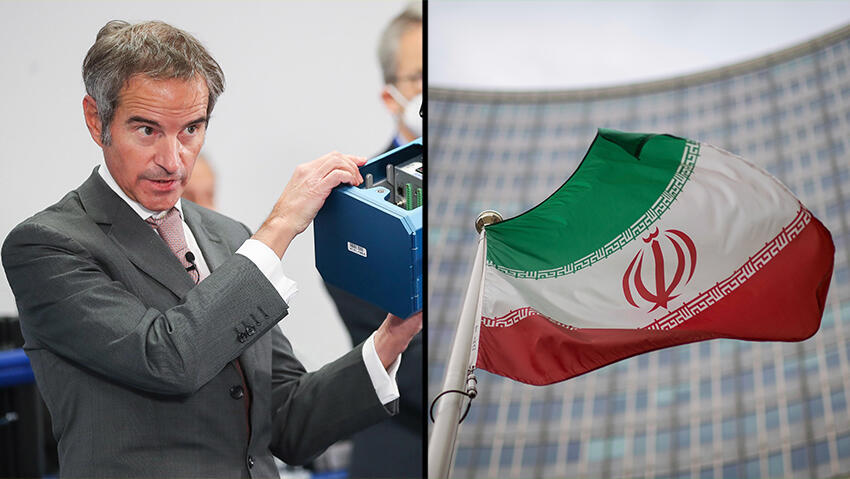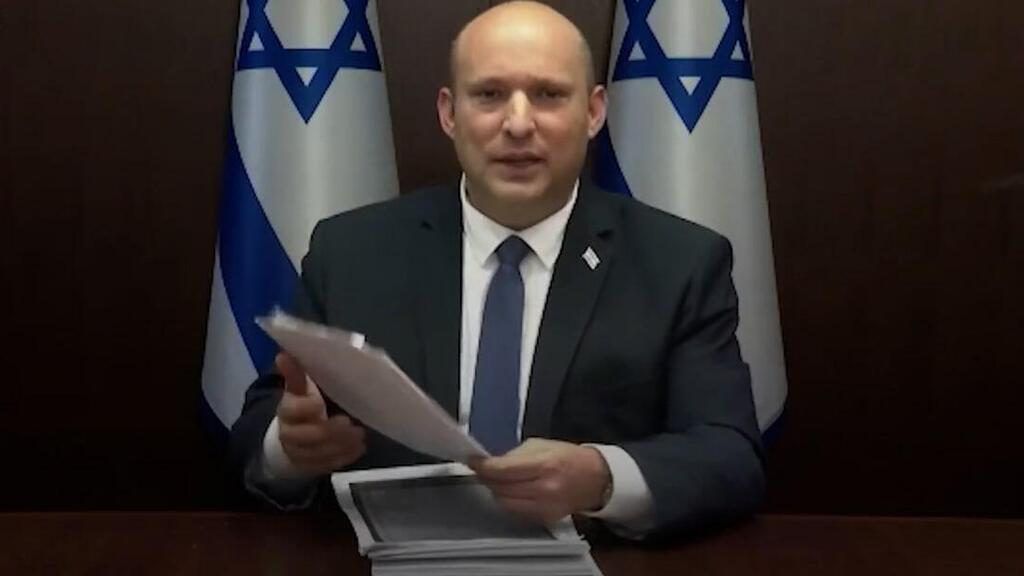Getting your Trinity Audio player ready...
Prime Minister Naftali Bennett said on Tuesday that Iran continues to lie about its nuclear program following the UN nuclear watchdog's report regarding Tehran's stockpile of enriched uranium.
Neither Tehran nor the International Atomic Energy Agency (IAEA) immediately responded to requests for comment about the allegations, which appeared to be part of an Israeli campaign to dissuade big powers from renewing a 2015 Iranian nuclear deal in now-stalled Vienna negotiations.
In a video posted on social media, Bennett read aloud from a selection of the files, allegedly stolen by Mossad, some of them translated into English.
"Iran stole classified (IAEA) documents ... and used that information to systematically evade nuclear probes," he said. "How do we know? Because we got our hands on Iran's deception plan a few years back."
"It is right here in my hands, in the Persian language, hundreds of pages marked with a stamp of Iran's Intelligence Ministry. There are even some handwritten notes on the documents by senior Iranian officials, like this one, written by then-Defense Minister Mohsen Fakhrizadeh."
Fakhrizadeh was assassinated on November 2020 in an operation Iran has attributed to Israel.
Prime Minister Naftali Bennett speaks about Iran's cover story
(Video: GPO)
Bennett quoted an Iranian defense official as writing in the alleged documents that "sooner or later they (IAEA) will ask us, and we'll need to have a comprehensive cover story for them".
A Bennett aide said the latter assertion referred to Israeli spies' publication in 2018 of what they said was a secret trove of documents seized in Iran and related to its nuclear projects. Tehran called that so-called "Atomic Archive" a fabrication.
Iran says its nuclear program is peaceful. Israel, Washington and the IAEA have long made clear that they believe Iran had a coordinated nuclear weapons program until 2003.
2 View gallery


Rafael Mariano Grossi, Director General of the International Atomic Energy Agency, Iranian Flag
(Photo: EPA, AP)
Meanwhile, IAEA said that Iran is continuing its enrichment of uranium at levels higher than the 3.67 percent limit set in the 2015 deal.
The IAEA spent more than a decade investigating Iran's past activities, and is now again seeking answers from Iran on the origin of uranium particles found at three undeclared sites.
In a report issued on Monday, the IAEA said it still had questions that were "not clarified" regarding previous undeclared nuclear material at Marivan, Varamin and Turquzabad nuclear sites.





